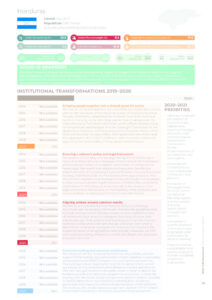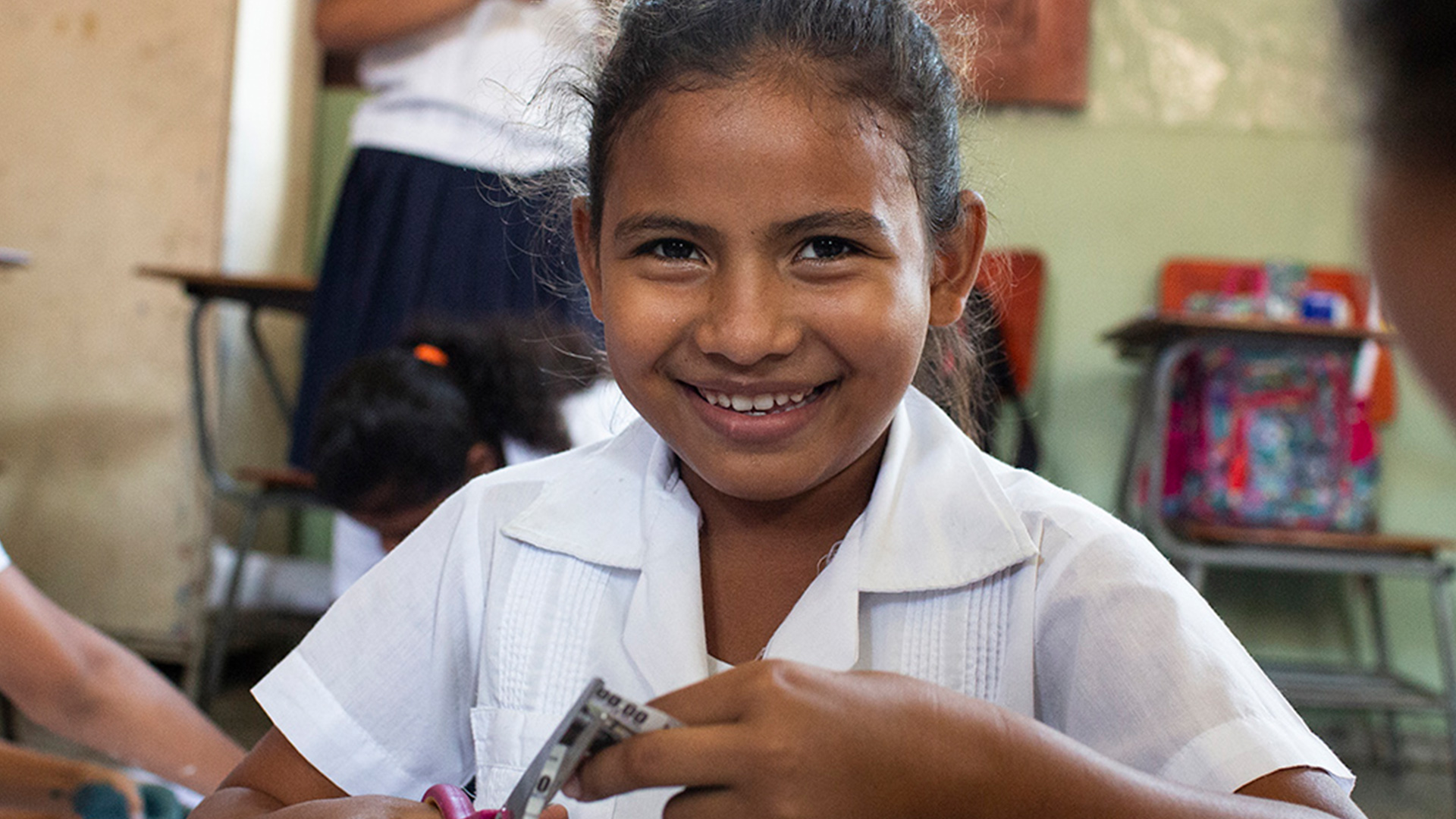Nutrition situation
Under five stunting (%)
22.6
Under five overweight (%)
5.2
Anaemia in women 15-49 years (%)
17.8
Under five wasting (%)
1.4
Low birth weight (%)
10.9
0 to 5-month-old exclusive breastfeeding (%)
30.7
Adolescent overweight (%)
Male: 23.4
/ Female: 28.6
Adult overweight (%)
Male: 51.8
/ Female: 59.5
Adult obesity (%)
Male: 15.6
/ Female: 26.9
Adult diabetes (%)
Male: 8.5
/ Female: 10
COVID-19 snapshot
The Government activated the National Risk Management System to support the Ministry of Health in managing the emergency, and prepared a comprehensive Plan to Contain and Respond to Coronavirus Cases. A Presidential Commissioner was appointed for the COVID-19 Response. The Humanitarian Team has mobilized USD 35.2 million for the implementation of the Humanitarian Response Plan.
Institutional transformations 2019-2020
Bringing people together into a shared space for action
The Law on Food and Nutrition Security (FNS) was established, which calls for the formation of the National System of Food and Nutrition Security (SINASAN), comprising the National Council on Food and Nutrition Security, as the directing and decision-making body, the Interinstitutional Technical Committee, as the official technical body for consultation and dialogue, and the Oversight Committee for the application of policies, and monitoring and evaluation. Review of the Food and Nutrition Security Policy. Joining the SUN Movement and the subsequent visit of the Coordinator were the main catalysts for regulating the functionality of these spaces and networks.Ensuring a coherent policy and legal framework
The revision of the Policy and Strategy during 2017 and 2018 was a national and local process of dialogue which involved the mobilisation of the National System and regional committees. It is important to have a legal framework that requires and regulates the effective implementation of the National Food and Nutrition Security Policy and Strategy (PyENSAN) 2030. An FNS law has been approved, but it has not yet been regulated and the legal framework needs to be analysed in order to ensure proper implementation. COVISAN (the surveillance commission for FNS) plays an important role in the revision of the legal and political frameworks, on the feasibility of the PyENSAN and sectoral policies, on advocacy in relation to decision makers.Aligning actions around common results
The National Food and Nutrition Security Policy and Strategy (PyENSAN) are the guiding framework that provide guidelines and strategic measures and cohesive actions to work together so that all Hondurans have access to adequate food and nutrition, with sustainable agri-food systems and fostering communities that are resilient to crises and to climate change. One short-term priority identified is: to develop a programme structure that supports the implementation of the guidelines and strategic measures. An FNS control panel is being prepared to enable the design and operation of assessment tools.Financial tracking and resource mobilisation
The Technical Unit for Food and Nutrition Security (UTSAN), with the support of the food security and nutrition impact, resilience, sustainability and transformation (FIRST) Programme, a partnership between the Food and Agriculture Organization and the European Union, carried out a study on the composition and coherence of public spending on FNS with data gathered from the public sector, in order to identify the budgets according to institution, programme and activity. Linking this tracking with the results-based management platform makes it possible to identify elements at the institutional planning level. Budgetary guarantees that ensure the effective implementation of the PyENSAN are necessary. The results-based management platform of the General Government Coordination Secretariat is a monitoring mechanism.2020-2021 Priorities
- Advocacy to elevate the position of nutrition to the highest level, resulting in budget allocation under interinstitutional coordination mechanisms for the implementation of the PyENSAN and action plans.
- Consolidation of SINASAN as a multi-stakeholder mechanism and platform.
- Formation of the programme structure within the National Planning System and the national and local results-based management platform.
- Strengthen IT systems (national and local) in order to generate solid information for decision-making.
- Progress towards a sustainable food systems approach, in order to address all forms of malnutrition.
Download

